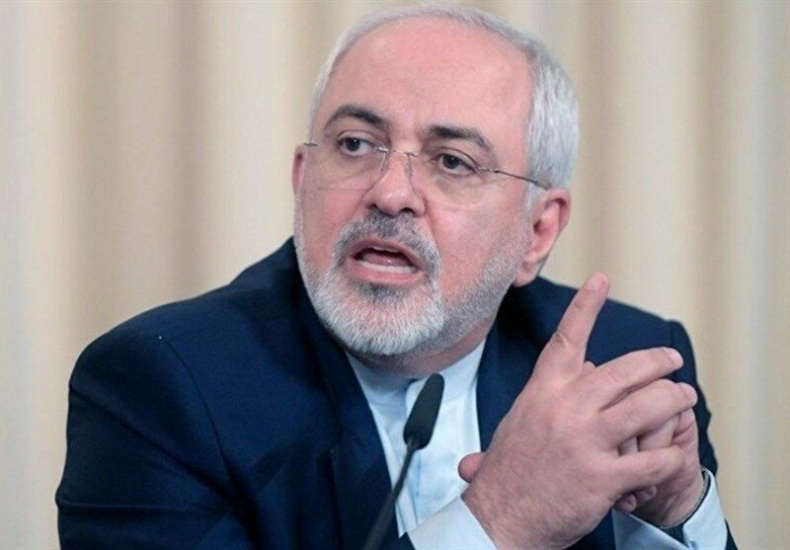Zarif reminds the West who pursues ‘malign’ behavior in the region

The chief Iranian diplomat said the West provided chemical weapons to former Iraqi dictator Saddam Hussein during the Iran-Iraq war in the 1980s, which Saddam used against Kurdish people in northern Iraq on March 16, 1988.
“March 16 is the 33rd anniversary of the chemical carnage in #Halabja. Some care not to remember—those in the west who provided Saddam with the deadly chemicals. Over 5,000 innocent civilians were gassed to death. Still, want to talk about ‘malign regional behavior’? Shameless,” the Iranian foreign minister said in a tweet on Tuesday.
The tweet comes against a background of heightened tensions between Iran and the West over the 2015 Iran nuclear deal, officially known as the Joint Comprehensive Plan of Action (JCPOA). The United States withdrew from the JCPOA in May 2018 under Donald Trump. But now with Joe Biden in charge, the U.S. says that reviving the nuclear deal is not enough and that other issues such as Iran’s influence in the region and its defensive missile program must be included in any future talks, something that Iran firmly rejects. The West claims that Iran’s influence in the region is “malign” but Iranian officials say it’s the U.S., not Iran, that pursues malign behavior in the region. Zarif has more than once denounced the Western support for Saddam as a grave mistake.
In March 2019, Zarif said the Iranian nation and Kurdish brothers in Iraq will never forget the Halabja and Sardasht chemical attacks.
“First they denied it happened—then they blamed Iran. When it was clear it was their own ally, using their own chemical weapons, they were silent. The West may like to forget about horrors of Halabja & Sardasht—31 years ago today—but neither we nor our Kurdish brethren, ever will,” Zarif tweeted at the time.
On March 16, 1988, Iraqi dictator Saddam Hussein ordered his air force to attack Halabja in northern Iraq with chemical bombs, using nerve agents such as VX and mustard gas to kill thousands of innocent civilians. The attack killed between 3,200 and 5,000 people and injured 7,000 to 10,000 more, most of them civilians.
The Halabja attack was part of the Al-Anfal Campaign in northern Iraq. The attack has been recognized as a distinct event of genocide conducted against the Kurdish people by the Saddam regime. The Iraqi High Criminal Court recognized the Halabja massacre as an act of genocide on March 1, 2010.
In March 2020, Iran’s Consul General in Sulaymaniyah, Mehdi Shoushtari, said that the Iraqi Baath regime’s chemical attack on the Kurdish city of Halabja in northern Iraq was a “big anti-human tragedy.”
“Undoubtedly, this criminal incident against the innocent people of Halabja by a criminal regime through using chemical weapons manufactured by certain Western countries, which make claims about defending human rights, was one of the biggest anti-human tragedies,” he said in a message to Halabja Governor Azad Tofigh.
Shoushtari also said, “The Islamic Republic of Iran fulfilled its Islamic and humanitarian duty in this respect and supported the people of Halabja. These supports continued in different periods of time during history such as fighting terrorism and extremism.”
Source: Tehran Times

